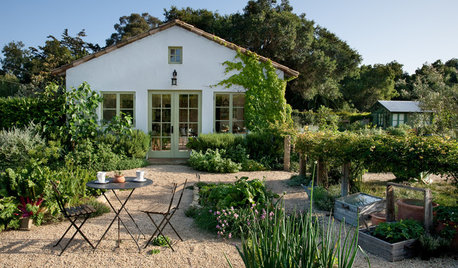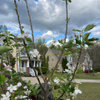Apache Blackberry - the new thornless, erect blackberry
Annie
16 years ago
Related Stories

EDIBLE GARDENSHow to Grow 10 Favorite Fruit Trees at Home
Plant a mini orchard in fall, winter or early spring to enjoy fresh-off-the-tree fruit the following year
Full Story
FARM YOUR YARDHow to Set Up a Productive and Beautiful Edible Garden
These 8 design strategies will help you design a hardworking kitchen garden that’s as gorgeous as your ornamental beds
Full Story






fruitgirl
newyorkrita
Related Professionals
Canton Landscape Architects & Landscape Designers · Clemson Landscape Architects & Landscape Designers · Seabrook Landscape Architects & Landscape Designers · Simi Valley Landscape Architects & Landscape Designers · Sahuarita Landscape Architects & Landscape Designers · Berkeley Heights Landscape Contractors · Centereach Landscape Contractors · Hendersonville Landscape Contractors · Huntley Landscape Contractors · Hurricane Landscape Contractors · Raleigh Landscape Contractors · Roswell Landscape Contractors · St. Louis Landscape Contractors · Kingsburg Landscape Contractors · Shafter Landscape ContractorsAnnieOriginal Author
jellyman
fruitgirl
judson
jellyman
judson
rayrose
Embothrium
jellyman
fruitgirl
brian8156
jellyman
herpervet
dkeith
organic_kitten